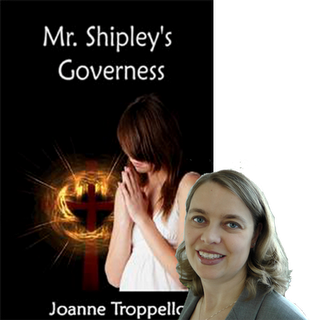While I focus mainly on the craft of writing, I occasionally talk about my publishing journey or invite guest authors to share their experiences. My hope is that this will inspire readers in their own journeys, whether you find a kindred spirit or get inspired by something new. Today’s guest, romantic suspense author Joanne Troppello, shares why she likes happy endings. I like happy endings too – that’s why I write children’s books and romantic suspense, where good wins out and is rewarded. I like books that leave the reader feeling happy.
Here’s Joanne:
The willing suspension of disbelief was first utilized by the English poet, Samuel Taylor Coleridge. Basically, if a writer can impart a human element and an aspect of truth into the story, the reader will be drawn in and willingly suspend their disbelief and fully engage in the far-fetched tale.
Isn’t that why we read fiction novels and short stories and go to see movies? We want to be entertained and forget about our lives for the moment and transport to another world. In that process of being transported to another world, I tend to enjoy happy endings for the characters involved. My husband, on the other hand, always teases me that sad endings are fine too because that’s real life. Then I usually come back with I have enough issues in real life and that’s why I want to escape into happy endings. Due to my affinity for happy endings and all things romantic, when I decided to write novels, I naturally fell into the romance genre. However, I also enjoy a good mystery, so romantic suspense really feels like home to me.
Writing romance novels gives me a chance to focus in on the hero and heroine and not get bogged down by having to deal with a whole bunch of characters. However, someday I may decide to write that epic dramatic tale with multiple plotlines and several main characters—but not today or at least not in the near future. Right now, I’m in love with love stories.
Who doesn’t enjoy creating dashing heroes and fair maidens in distress? Okay, so maybe that’s too much of a stretch, but I like the dynamic of creating well-developed characters that fall in love. I want to tell their story. I am a true romantic at heart. I guess that’s why I’m a sucker for a great romantic drama or comedy. True, the formula is always the same in those movies as well as novels—but I revel in the fact that as an author, I can use that time honored formula and make it my own. Using creative ways, I can dream up exciting plots with twists and turn, all the while sharing a true love story with readers who feel the same way—they love happy endings.
True, real life isn’t always a bed of roses and I don’t want to create a fantasy world. Weaving real life elements into the story is the cement that holds everything together. I want to show that true love is true when it can weather the storms of life and come out stronger. It grows through trials and tribulations and with a decision to stick together through good times and bad times, love will always win out.
As a reader, I want to read a book which portrays this perspective that there is such a thing as true love. It embraces romance, but like a diamond—has many facets. True love is able to endure the daily pressures just like it welcomes romance and roses into the relationship. True love knows the difference between both sides to the relationship, but can’t co-exist without the other. A fire starts with a spark, then bursts into full flame and if not tended to, will die out. That’s where fanning the flame comes into play—I want to know that the hero and heroine, not necessarily live happily ever after, but live together in true unconditional love in the real world.
Are you a kindred spirit—do you love romance and happy endings?
Joanne Troppello is an author of romantic suspense novels. She has published three books: Shadowed Remembrances, Mr. Shipley’s Governess and Bella Lucia. Currently, she is working on her new writing project, The Paradise Redeemed Series. Joanne is married and loves spending time with her husband and family. She enjoys interacting with readers at The Mustard Seed Blog.
Author Contact Links







